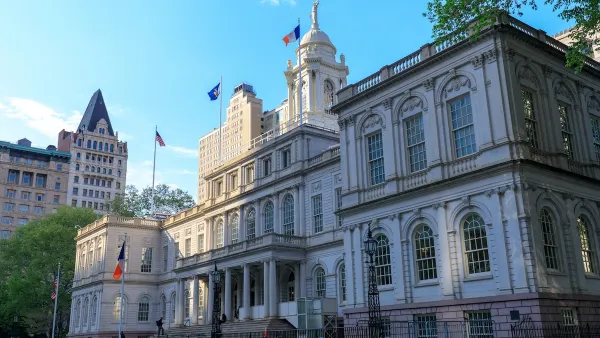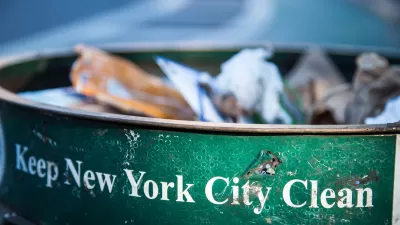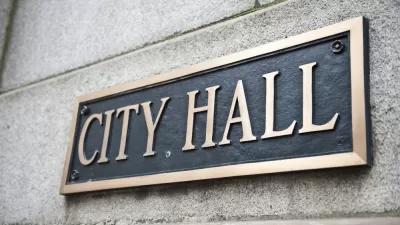SoHo, a Manhattan neighborhood full of luxury apartments and a median income of $111,000/year, must accept a new facility that includes a garage for sanitation trucks. Why, and how will it test the city's commitment to infrastructure design?
A core environmental justice fight has long been the fair distribution of necessary nuisance uses throughout a city. Poor neighborhoods tend to be over-burdened with unpleasant parts of public infrastructure like bus depots and sewage plants, with cumulative negative effects on resident health and quality of life.
Often activists in these over-burdened neighborhoods band together to fight the location of yet another of these kinds of facilities, which leads to inevitable labeling of them as just naysayers and exchanges like, "Well where should they go?" "How about the rich neighborhoods take their share?" "Yeah, like that will happen."
In New York City, former Mayor Bloomberg apparently decided to make it happen, roughly, with a solid waste plan that at least declares that each of the city's five boroughs should take adequate responsibility for its own trash. And current Mayor DeBlasio is sticking with the plan.
This means, as CityLab's Aarian Marshall recently reported, that SoHo, a Manhattan neighborhood full of luxury apartment towers and a median income of $111,000/year, has been forced to accept, despite protest from some very wealthy and powerful people, a large building that includes a garage for sanitation trucks.
FULL STORY: Rich Neighborhood in NYC Actually Gets a “Noxious” Use

Planetizen Federal Action Tracker
A weekly monitor of how Trump’s orders and actions are impacting planners and planning in America.

San Francisco's School District Spent $105M To Build Affordable Housing for Teachers — And That's Just the Beginning
SFUSD joins a growing list of school districts using their land holdings to address housing affordability challenges faced by their own employees.

The Tiny, Adorable $7,000 Car Turning Japan Onto EVs
The single seat Mibot charges from a regular plug as quickly as an iPad, and is about half the price of an average EV.

With Protected Lanes, 460% More People Commute by Bike
For those needing more ammo, more data proving what we already knew is here.

In More Metros Than You’d Think, Suburbs are Now More Expensive Than the City
If you're moving to the burbs to save on square footage, data shows you should think again.

The States Losing Rural Delivery Rooms at an Alarming Pace
In some states, as few as 9% of rural hospitals still deliver babies. As a result, rising pre-term births, no adequate pre-term care and "harrowing" close calls are a growing reality.
Urban Design for Planners 1: Software Tools
This six-course series explores essential urban design concepts using open source software and equips planners with the tools they need to participate fully in the urban design process.
Planning for Universal Design
Learn the tools for implementing Universal Design in planning regulations.
Smith Gee Studio
City of Charlotte
City of Camden Redevelopment Agency
City of Astoria
Transportation Research & Education Center (TREC) at Portland State University
US High Speed Rail Association
City of Camden Redevelopment Agency
Municipality of Princeton (NJ)





























